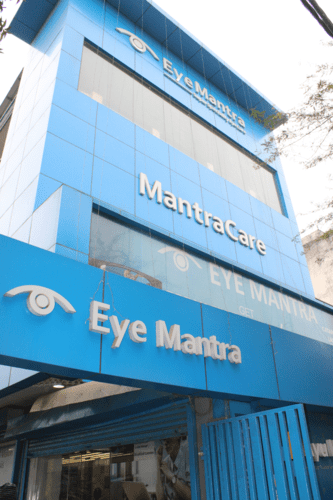Retina Surgery
The retina is like the film of the camera that transfers the image to the brain for processing and analyzing. A damaged retina can drive to notable visual disturbances. The problem in viewing the objects is the biggest barrier one will face. The disturbance remains permanently if not treated in time. Retinal surgery usually takes 1-2 hours to perform. The retinal diseases are the way most common causes of a permanent loss of vision in many patients, if not operated on time.
Book Appointment
Problems Associated With Retina
There are four main types of disorders which are related to the retina:
- Diabetic Retinopathy – It is the most usual problem linked with people having disease diabetes. In Diabetic Retinopathy disease, the huge blood sugar levels damage the blood vessels of the retina and harm it. In the advanced stages, it can cause blindness.
- Retinopathy Of Prematurity – RoP is essentially caused due to the retinal blood vessels growing abnormally and harming prematurely born babies. It can cause retinal detachment and blindness.
- Age-Related Macular Degeneration – The damage of the Macula can cause AMD which can lead to permanent vision loss.
- Retinal Detachment – It is mainly the detachment of the retina from the layer underneath. If it is not taken care of properly, there is a chance of permanent vision loss.
Fluorescein Angiography is one of the most common tests that are done to identify the problems which can cause permanent blindness due to disorders of the Retina.
Based on the results, the patients are either suggested for Anti-VEGF Therapy or Photodynamic Therapy depending upon their condition.
Retina And Uvea
Diabetic Retinopathy
It is triggered by complications of diabetes, which can ultimately result in blindness. It is an ocular manifestation of diabetes, a systemic ailment, which affects up to 80 percent of all patients who have had diabetes for 10 years or more. Despite these intimidating statistics, research specifies that at least 90% of these new cases could be reduced if there were appropriate and watchful treatment and checking of the eyes.
The longer an individual has diabetes, the greater his or her probability of developing diabetic retinopathy. Diabetic retinopathy often has no initial warning signs. Even macular edema, which might cause vision loss more quickly, might not have any warning signs for some time.
Age-related Macular Degeneration
Age-related macular degeneration starts with characteristic yellow deposits (drusen) in the macula, between the retinal pigment epithelium and the underlying choroid. Maximum individuals with these initial changes (referred to as age-related maculopathy) have good vision.
The hazard is higher when the drusen are big and several and associated with a disruption in the pigmented cell layer underneath the macula. Age-related macular degeneration is a medical ailment that typically affects older adults and leads to a loss of vision in the center of the visual field (the macula) owing to impairment to the retina.
Retinal Detachment
Retinal detachment is an ailment of the eye in which the retina crusts away from its underlying layer of support tissue. Initial detachment might be localized, but without speedy treatment, the whole retina might detach, resulting in vision loss and blindness. It is a medical emergency.
A retinal detachment is commonly heralded by a posterior vitreous detachment which gives rise to these symptoms: Flashes of light, a sudden dramatic upsurge in the number of floaters, a loop of floaters or hairs just to the temporal side of the central vision, a minor feeling of heaviness in the eye.
Uveitis
Although Uveitis is generally an isolated illness, myriad conditions can be related to it, including syndromes with major involvement of other body portions, as well as syndromes restrained to the eye. In anterior Uveitis, no related condition or syndrome is found in almost one-half of cases. However, anterior Uveitis is often one of the diseases associated with HLA-B27.
Retina Surgery At EyeMantra Eye Centre
Want to protect the vision of your loved ones and you as well?
Visit Eyemantra Eye Centre, for Retinal Treatment consultation, where specialists work round the clock to assure vision protection. Plus, they provide valuable services with hygienic amenities.
Infants and adults with various types of retina difficulties are examined here. Also, treated as per the condition. Our eye hospitals have a gilt-edge foundation with excellent standard machines to diagnose and treat every kind of eye condition.
We also have worldwide patients i.e. National and international as well. Patients come from different parts of the world to get their retina surgery operated on and leave entirely happy with our treatment.
Eye Mantra Foundation believes in giving back to society and so to complete this mission, we have set up Charitable Eye Hospitals, which cater to the needs of people who have one or another form of eye ailment but do not have the means to afford the treatment.
- Our mission is to provide affordable eye care to everyone.
- Being an enthusiastic leader in the eye care sector, we have state of the art technologies for eye treatments.
- We have started this charitable hospital to make sure that even the poorest strata of society, has access to the best eye care treatment methods.
- We believe in giving back to the society and so for this particular purpose, EyeMantra provides it’s services to the poor sections of society at no cost.

Our Team

Dr Shweta Jain
Cataract, Retina, LASIK

Dr Neha Wadhwa
Cataract, Retina, LASIK

Dr. Lalit Chaudhary
Femtosecond LASIK

Dr. Poonam Gupta
Femtosecond LASIK
Frequently Asked Questions
We have heard that retinal surgery is painful. Is it true?
One may have some pain in their eye and vision may be blurry for a few days after the surgery. If a doctor used a gas bubble to flatten the retina while surgery, one may have to hold their head in a specific position for a few days or higher.
What are the various kinds of retinal detachments?
There are 3 types of retinal detachments :
- Rhegmatogenous
- Tractional
- Exudative
What symptoms will alert me to visit a Retinal Specialist?
The most common symptoms of retinal disease undergone by our patients hold an immediate loss of vision or blurry or distorted vision.
Which treatments are possible for Detached Retina?
There are various treatment choices possible for detached retina:
- Laser retina repair
- Injections of air or silicone oil
- Vitrectomy
- Scleral buckle
